How to Apply for Credit with EIN Only
Author: Dylan Buckley
January 23, 2026
11 min read
TABLE OF CONTENTS
- 1. Keep Your Business Details Consistent on Each Application
- 2. Avoid Lenders with Personal Credit Checks
- 3. Check Your Business Credit Reports and Scores
- 4. Only Apply to Lenders Who You Think Will Approve You
- 5. Know Which Credit Bureaus Each Lender Reports to
- 6. Applying for Business Credit Cards
- 7. Build Business Credit with FairFigure
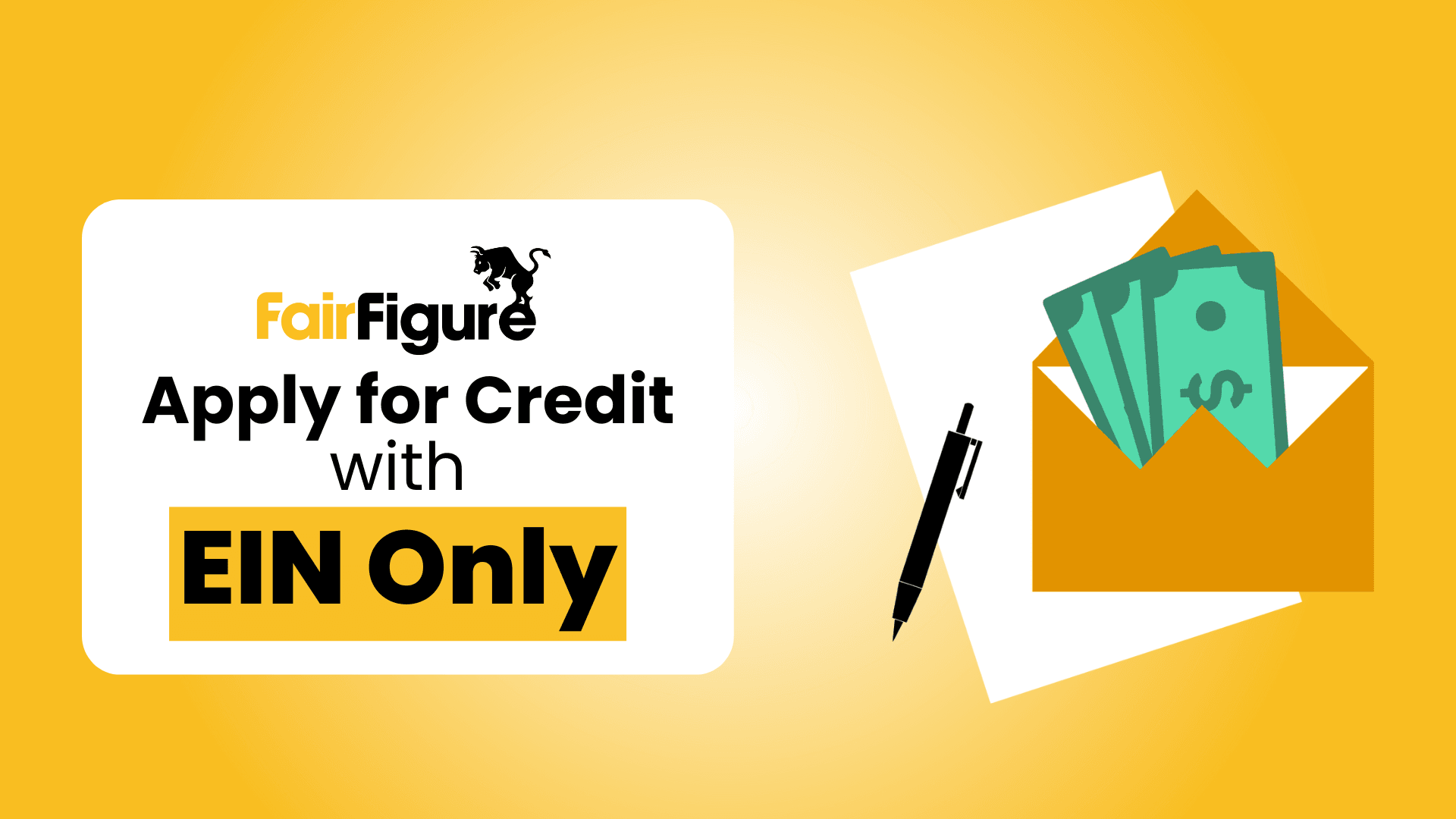
Start your credit building journey for your business

Credit solutions that only require your employee identification number (EIN) allow you to circumvent common problems that arise when mixing business and personal finances.
We help you navigate the application process by highlighting the most essential steps to take in this guide. Here’s how to apply for credit with EIN only.
1. Keep Your Business Details Consistent on Each Application
Discrepancies in applications can raise red flags for credit issuers. This makes it harder to secure the funding you need.
It’s crucial that you keep your business details consistent on each application you fill out.
This includes items like your:
- Business name
- Business address
- Business phone number
- Employee identification number
- DUNS number
- Other personal or business contact information
This is essential no matter what type of business credit card, loan, or other financial tool you’re applying for. Take care to establish one central place of business, a business phone number, and apply for an EIN and DUNS number before you apply for EIN-only credit solutions.
Then, review your applications carefully to ensure that all information is correct and that there are no typos that could create problems for your small business later.
Otherwise, you may find it difficult to get a business credit card, loan, or other sources of business credit you need for your business.
2. Avoid Lenders with Personal Credit Checks
Personal credit checks are going to be practically unavoidable with most traditional lenders.
You can avoid using personal credit with some traditional lenders, like a credit card issuer. However, even then, your business would need to produce sizeable, consistent revenue and have established business credit with a high credit score.
Most business credit cards will ask for your SSN.
If you want to avoid personal credit checks, you have to seek out lenders that only consider your EIN.
Let’s imagine that you’re in the market for a business credit card. While you might not be able to get a card with traditional banks, there are startup business credit cards with no credit EIN only.
When it comes to how to use EIN number for credit cards, you can get cards like corporate business credit cards and fleet cards without a personal credit check.
It won’t be a traditional business credit card. However, it won’t matter so long as you’re building credit and getting the funding you need. These alternatives to business credit cards might offer more desirable terms anyway.
If you need a small business loan, you’re not out of luck either. You might be able to secure microloans, a merchant cash advance, or tap into invoice financing without having to rely on your personal credit.
As a side note, almost every lender is still going to ask for your SSN, even if they aren’t checking your personal credit. This is due to KYC and AML laws. This is true no matter if you’re applying for loans or business credit cards.
When you research business credit cards with no personal credit check, for example, you’ll still be required to provide your SSN.
It’s also important to pay attention to the fine print when it comes to filling out applications. Some will boast an EIN-only application, but will actually perform a soft pull when you provide your SSN. This won’t impact your credit score, but it’s worth noting.
Carefully research and consider your options to ensure you’re getting the best terms and funding your small business needs.
3. Check Your Business Credit Reports and Scores
Some credit that requires an EIN only is easy to qualify for. Regardless of your score, you’ll be able to get the card or account you need without having to worry about a lack of high business credit scores or credit history.
Others, however, will need you to have an established business credit history and a fair business credit score.
It’s essential that you keep tabs on your business credit reports and scores as you gradually acquire more EIN-only credit solutions.
Make sure you:
- Look for ways to get a free business credit check and a free business credit report. Then, seek out services that help you monitor your business credit with ease. Unlike personal credit, you’re not entitled to a free business credit report.
- Monitor any changes to your scores and reports. Mistakes can be made, and they need to be addressed quickly to reduce the impact on your business credit. In some cases, errors on your business credit report could potentially be a sign of fraud.
- Make all the right moves to raise your credit score as quickly as possible. With on-time (or early) payments, multiple credit accounts, and responsible credit usage, you’ll be able to access higher tiers of credit with EIN only in no time.
Your business credit will play a role when you want to get a business credit card or loan that features stricter eligibility requirements. Tracking your business credit score ensures you can get a business credit card or other credit solutions with ease.
4. Only Apply to Lenders Who You Think Will Approve You
Playing your cards right is key to applying for credit with fewer challenges.
When considering lenders, always:
- Seek out those who advertise EIN-only credit solutions. Solutions, like a business credit card EIN only, are going to be the most straightforward to apply to. You know you won’t need to leverage your personal credit to get the credit account you want.
- See who they accept. Do they generally accept businesses with large monthly revenue and established business credit? Or, are they approving small businesses like your own with smaller annual revenue and limited business credit history?
- Check lending requirements. Continuing with the above point, never go in blind. Always make sure that you meet all of the eligibility requirements before you apply for a business credit card or loan.
- Carefully review the terms and customer reviews. Some credit solutions are touted as being easy to qualify for, only for there to be hidden terms that aren’t made clear and lead to your rejection.
- Start at square one. Tier 1 business credit solutions, such as net 30 accounts, are easy to qualify for and will allow you to start building business credit rather quickly. The same goes for business credit building solutions.
Targeting lenders that are likely to approve you for a loan, business credit card, or another credit solution will save your small business time and money.
5. Know Which Credit Bureaus Each Lender Reports to
One thing that can be easy to miss when you’re applying for credit is reporting practices.
Not every credit solution you can apply for with just your employee identification number will help you build business credit.
Let’s say, for example, that you’re looking at net 30 accounts. There are quite a few net 30 accounts that will report your payments to major business credit bureaus. This helps you build your credit score and business credit history.
But then there are also outliers like the Amazon net 30 account. While you can get net 30 terms, none of your payments are going to help you build business credit. This defeats the point of applying for a net 30 account and slows your business credit-building progress.
Without a better credit score or business credit history, you won’t be able to access better credit solutions.
Look into lender reporting practices to ensure that they’re actively reporting your credit. The keyword here is “actively,” as some may say that you could build business credit. However, you may only build credit if you self-report.
Ideally, you want your lender to report to each of the major business credit bureaus. These include Dun & Bradstreet, Equifax Business, and Experian Business. You can easily learn which business credit cards who report to business credit bureaus.
If they report to at least one major business credit bureau, you’ll receive the credit-building benefits.
Should you find that the information is not available, reach out to the company offering business credit cards or loans. They’ll be able to tell you more so that you can make an informed decision.
Applying for Business Credit Cards
Business credit cards offer a revolving credit line that your business can tap into consistently to fund your business. However, traditional business credit cards may require a personal guarantee, personal credit check, and other hurdles.
The best business credit card might not be a traditional option at all.
If your personal credit score is low, your personal credit history is poor, and you want a business card that is EIN-only, there are two types of cards worth applying for: corporate cards and fleet cards.
Corporate cards include the Brex Corporate Card, the Rho Corporate Card, the BILL Divvy Corporate Card, and the Ramp Corporate Card.
A corporate card is a charge card that considers factors other than your business credit score. These include your time in business, business revenue, and investor funding. They’ll then offer a credit limit commensurate with these factors.
Corporate cards can be a great way to fund your business without worrying about your personal credit score. If you have a fleet, you might wish to consider fleet cards alongside your corporate card applications.
Unlike a corporate card, a fleet card does require you to have a business operating a fleet of vehicles. Fleet cards often offer a host of rewards with card membership centered around gas savings and cash back.
These cards often will cost you a monthly fee per card, while a corporate card won’t. However, they may save you more over time.
Some choices, like the AtoB card, have no credit limit or other restrictions on one of their cards because it’s a debit card solution. They offer both a prepaid card and a credit card that a small business owner can choose between.
Some fleet cards will also be advertised as a great card if you have poor personal credit history and want to avoid a personal credit check. The Shell Small Business Card comes to mind. But this fleet card is EIN-only if you’re a large business with sizable revenue.
Certain business credit cards, like secured business credit cards, are rarely worth it if you’re looking to avoid a personal credit check and have poor personal credit history. They come with high fees and a credit limit that’s determined by a minimum security deposit.
A corporate card or a fleet card is your best choice with a low personal credit score.
Build Business Credit with FairFigure
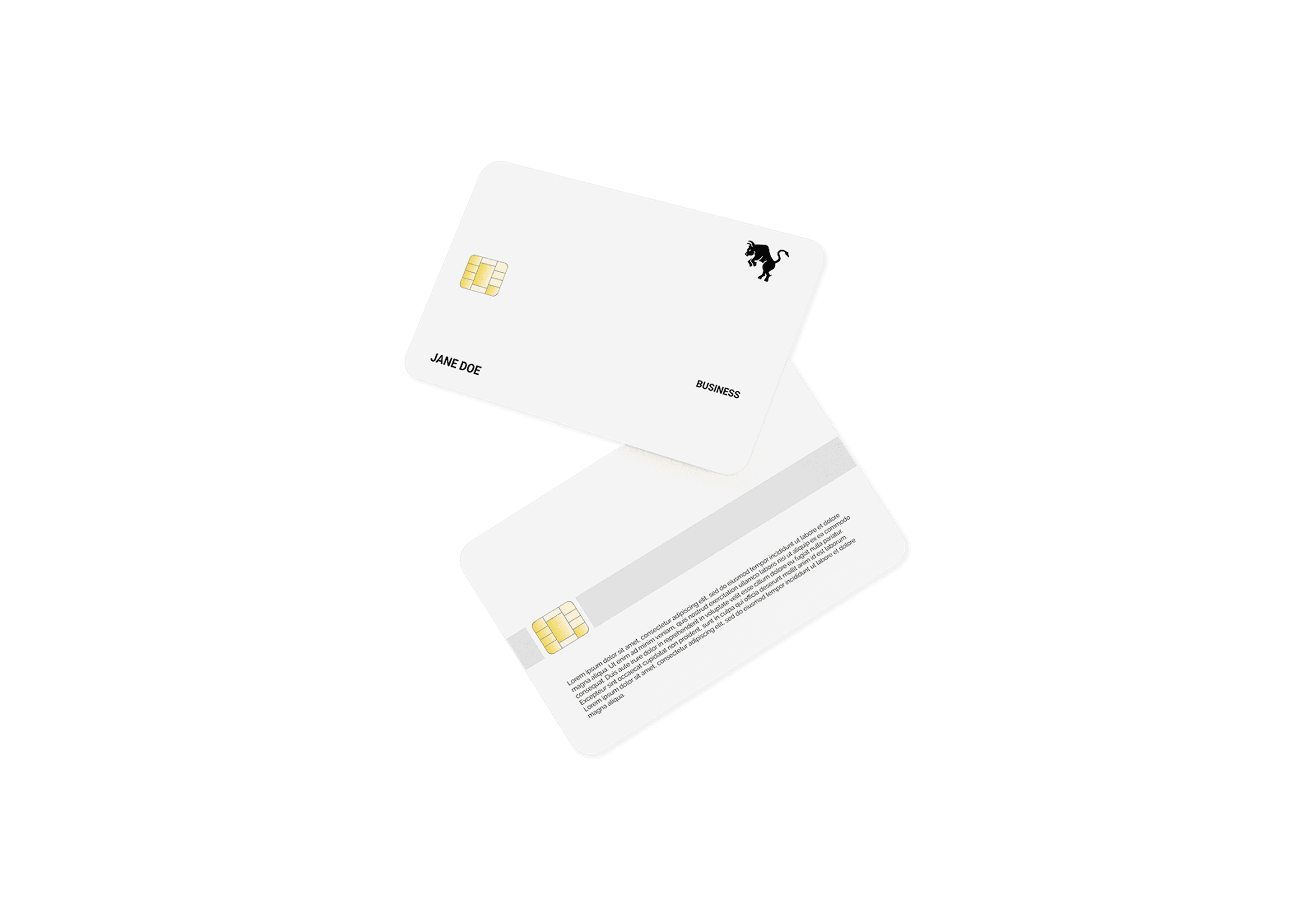
FairFigure’s business credit monitoring services help you easily track and compare your scores across Dun & Bradstreet, Equifax, and Creditsafe on one intuitive, easy-to-understand centralized user dashboard.
We help you understand and navigate your business credit journey with features like AI podcasts, our darknet scanner, and our quick business credit corrector. Best of all, each monthly subscription payment is reported as a tradeline to help you build credit.
With your business credit monitoring subscription comes access to the FairFigure Capital Card.
The FairFigure Capital Card is an EIN-only business credit builder card that offers funding based on revenue alone. There’s no personal credit check, no personal guarantee, and no paperwork required to get this business card.
The FairFigure Capital Card is much more accessible than traditional business credit cards. If your small business brings in at least $2,500 monthly and is at least three months old, the FairFigure Capital Card is a business card you can qualify for.
Because it’s not a business credit card, this also means that you won’t have to worry about interest rates. You can pay back your card with flexible four-week or eight-week payback terms. This gives you more control than offered by business credit cards as well.
Both FairFigure’s business credit monitoring subscription and the FairFigure Capital Card are reported to Creditsafe, the SBFE, Equifax, and the FairFigure Foundation Report.
Sign up for FairFigure today to start your business credit journey!
More articles
Read More >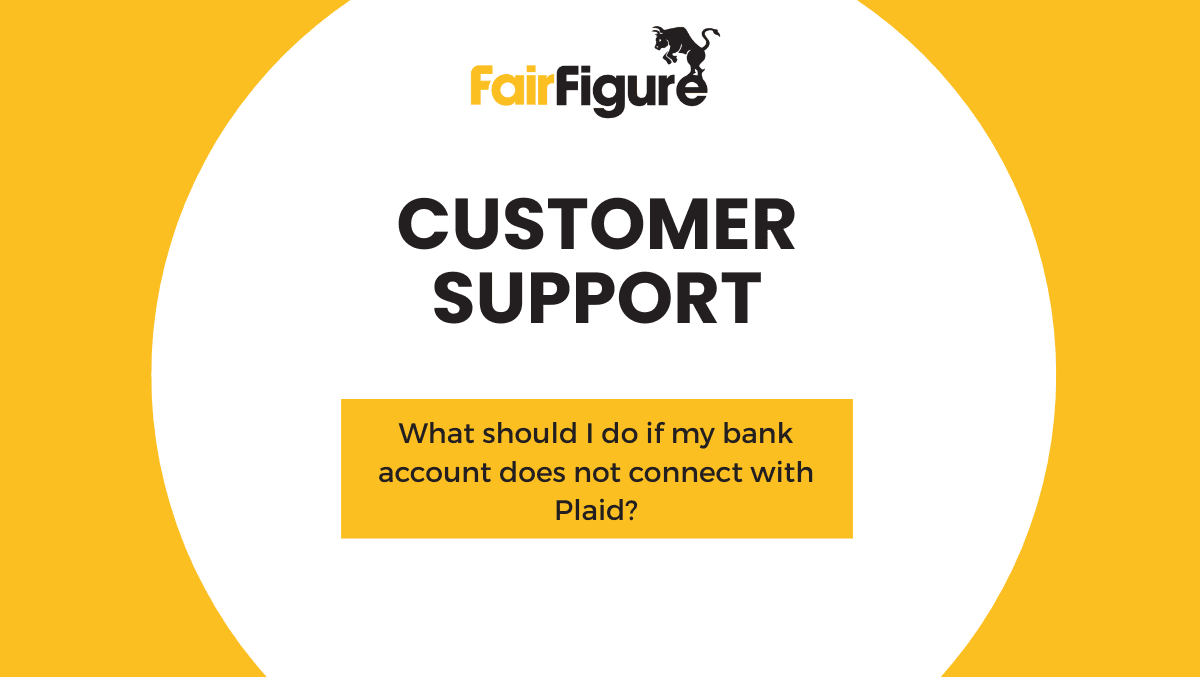
February 12, 2026
1 min read
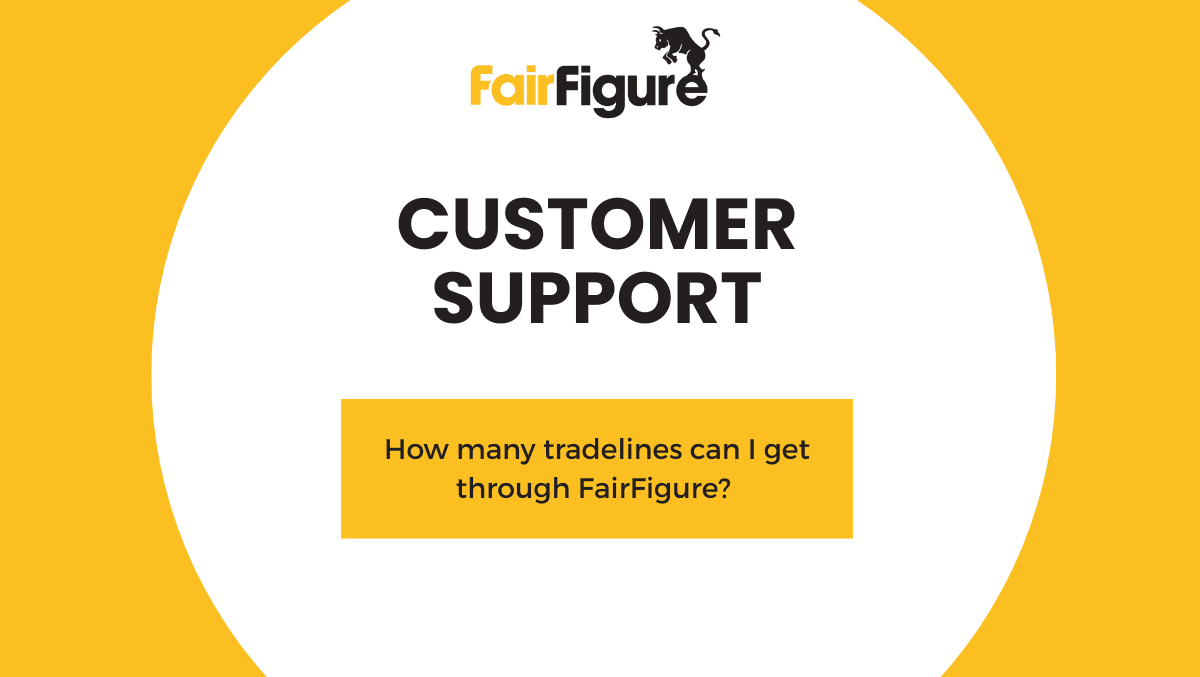
February 12, 2026
1 min read
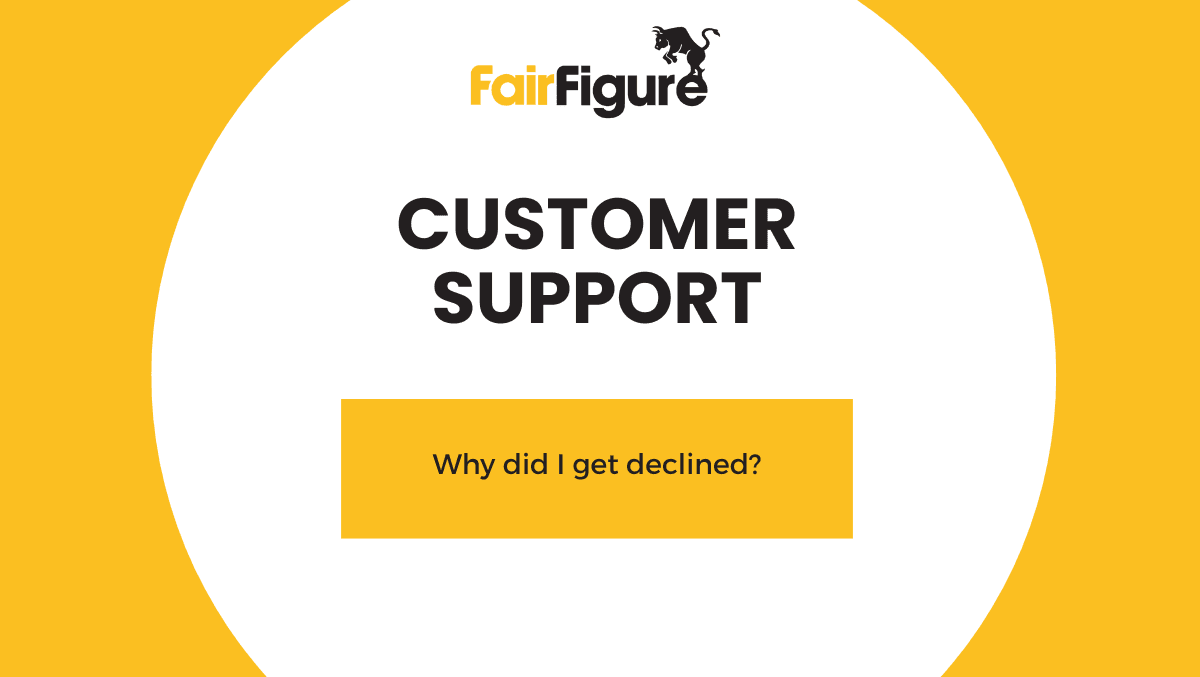
February 12, 2026
1 min read

Start your credit building journey for your business
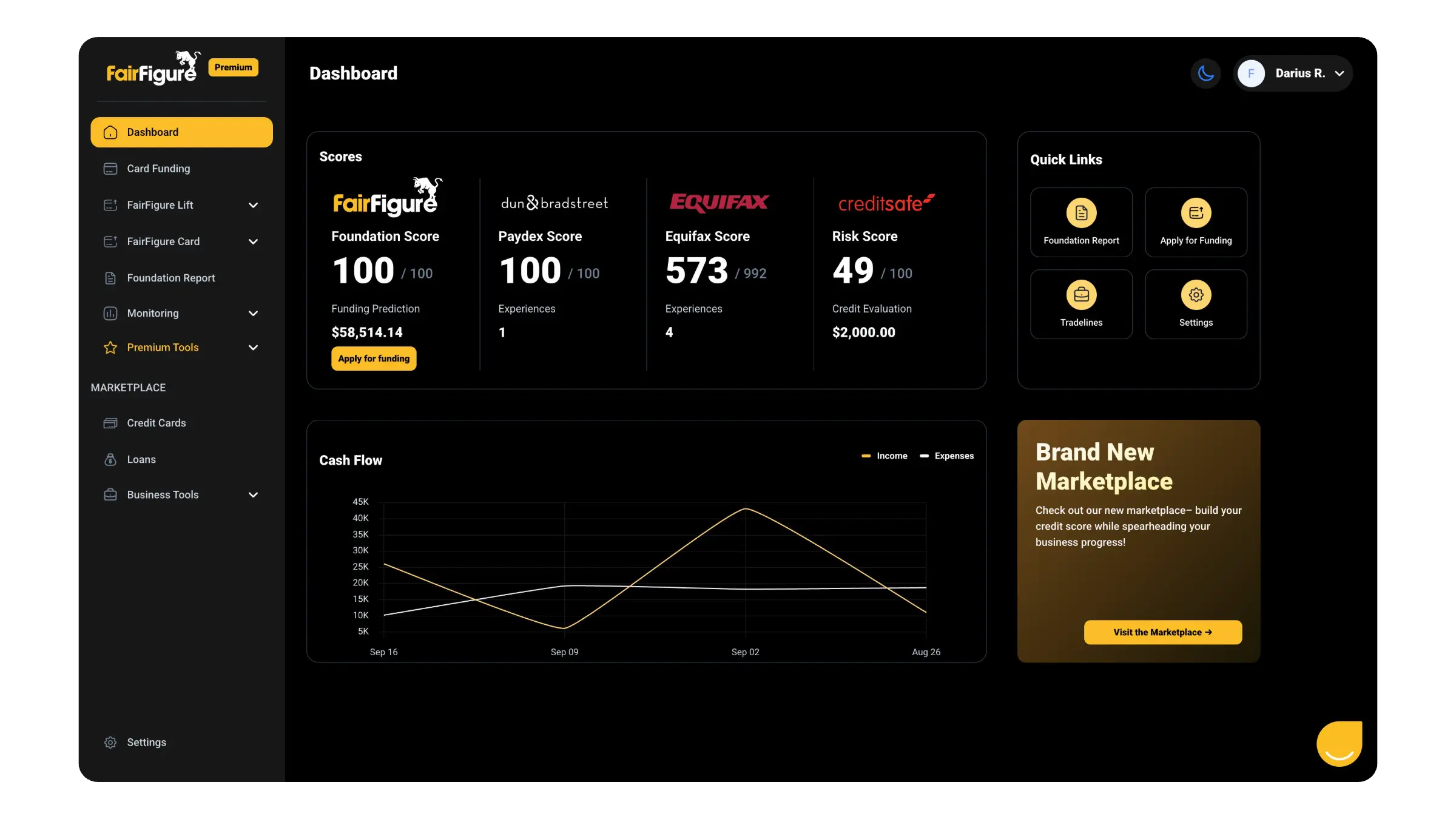
Start your credit journey now with FairFigure